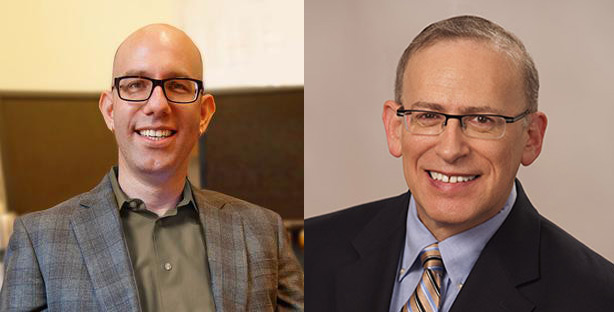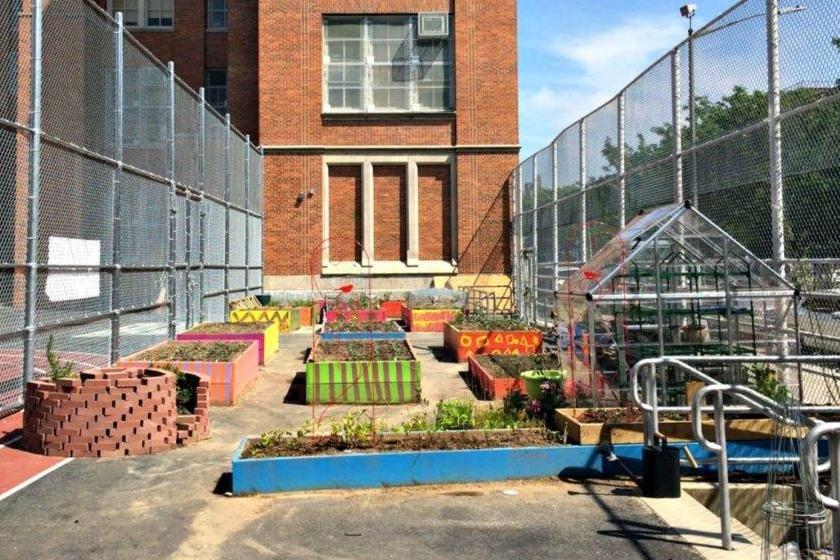A large majority of Americans support teaching primary and secondary school students about global warming and climate change, according to new findings from The Public Matters: How Americans View Education, Psychology and Health, a public-survey project at Teachers College. However, support for such climate education is significantly higher among women, people of color, younger adults, people in urban communities, and those identifying as liberals or moderates.
The new findings come on the eve of the United Nations Climate Summit. In addition, on Friday, Sept. 20, youth around the world walked out of classrooms in a planned “climate strike.”
[Read the new report, Americans Endorse Climate Change Education, on how the public feels about teaching climate change in schools.]
While a growing majority of Americans now believe climate change is a major threat to the nation’s wellbeing, the Public Matters effort breaks new ground in examining Americans’ views on teaching about the topic in schools.
Climate change is a defining issue of our time...schools can help young people grasp reality amid today’s noise and polarization, and shape academic, civic and career paths that can help build a climate-safe future.
Public Matters survey report
“Climate change is a defining issue of our time,” assert Teachers College’s Oren Pizmony-Levy, Associate Professor of International and Comparative Education, and Aaron Pallas, Arthur I. Gates Professor of Sociology & Education, in a report on the survey, titled “Americans Endorse Climate Change Education.” “By engaging students with climate science, energy history and related subjects, schools can help young people grasp reality amid today’s noise and polarization, and shape academic, civic and career paths that can help build a climate-safe future.”

Oren Pizmony-Levy, Associate Professor of International and Comparative Education and Aaron Pallas, Arthur I. Gates Professor of Sociology and Education (Photo: TC Archives)
Pizmony-Levy says that New York City’s Department of Education has been “a leader in engaging its schools with sustainability issues and climate change.” Since 2009, the city has been the only major municipality in the country to require each of its public schools to appoint a sustainability coordinator – part of the city’s broader sustainability plan to have net-zero Greenhouse Gas Emissions citywide by 2050. [Read a story about the efforts of Pizmony-Levy and his students to help the city evaluate this work.]
New York City Mayor Bill de Blasio has also expressed support for the planned walkout by the city’s students. “We have ten years to save the planet,” the Mayor recently tweeted. “Today’s leaders are making decisions for our environment that our kids will have to live with. New York City stands with our young people. They’re our conscience. We support the 9/20 #ClimateStrike.”
The Public Matters survey was conducted online in summer 2017, with 3,117 adults participating. Overall, 77 percent of respondents said it is important that elementary and secondary school students learn about global warming and climate change.
Among the specific findings:
- Half of women (51 percent) say teaching about climate change is “very important,” versus slightly more than one-third of men (36 percent).
- More than half of Asian Americans (56 percent), blacks (55 percent), and Latinx (57 percent) said that teaching about climate change is “very important.” Among whites, the figure drops to 37 percent.
- Fifty-seven percent of respondents ages 18-24 and 53 percent of respondents ages 25-44 said that teaching about climate change is “very important.” The figure drops to 38 percent for respondents age 45-64 and to 28 percent for respondents age 65 and above.
- Fifty-five percent of residents of urban communities said that teaching about climate change is “very important,” compared to 42 percent of suburban and 37 percent of rural respondents.
- Sixty-seven percent of those identifying as liberals said teaching about climate change is “very important,” compared to 22 percent of conservatives and 45 percent of moderates.
- Fifty-three percent of those identifying as not religious at all said teaching about climate change is “very important,” compared to 35 percent of very religious respondents.
Interestingly, responses to The Public Matters survey were not affected by substituting the phrase “climate change” for “global warming,” or vice versa. Previous research had demonstrated that such minor variations in question wording could elicit major shifts in responses.
Topics like global warming tie into everyday life – it’s important for kids to know why they need to take care of the environment.
Respondent to the Public Matters Survey
The new report also directly quotes many respondents. A 24-year-old man from Vermont wrote that “topics like global warming tie into everyday life – it’s important for kids to know why they need to take care of the environment.” A 38-year-old Latina mother from Arizona said of young people that “sometimes they don’t have enough information about this important issue and they don’t know how to react or behave.” And a 31-year-old Asian father from Georgia wrote, “Students should learn about global warming and human rights… many less developed nations are now experiencing global warming.”
Launched in 2018, The Public Matters draws on infrastructure and survey research expertise at Teachers College and brings together faculty from across the College to collaborate on public opinion projects related to their specific areas of interest.
Oren Pizmony-Levy directs the Teachers College Initiative for Sustainable Futures, a working group supported by TC’s Office of the Provost that is exploring the role of schools of education in the face of global environmental challenge, and which serves as a social infrastructure that connects TC community members interested in sustainability. [Check out the Initiative’s resources page to access webinars, a listing of sustainability organizations and other information.]
Aaron Pallas chairs TC’s Department of Education Policy & Social Analysis. He uses a variety of research tools to inform the public about the relevance and usability of educational research for policy and practice. He educates stakeholders—including representatives of the media—about the complexities and unexpected consequences of accountability and resource distribution policies in public schools. His current work, taken up by the Washington Post, Wall Street Journal, New York Times, and a variety of media reaching local political leaders, policymakers, parents, and voters, illuminates these dynamics across New York City, New York State and beyond.
